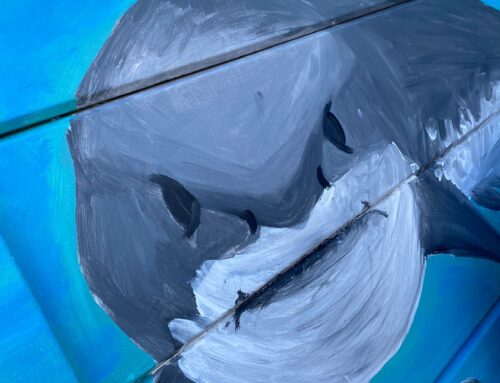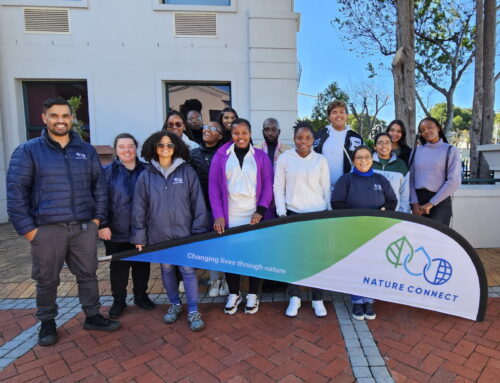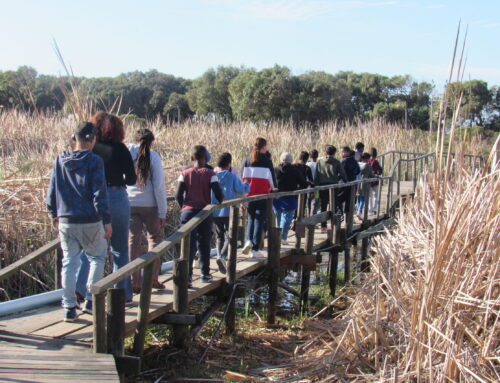Article written by Braden Ingram and images provided by Dr Kasmira Athmaram
Only once we understand, we can care.
Only if we care, we can help.
Only if we help, shall they be saved.
– Jane Goodall
Happy World Penguin Day! Today we celebrate these amazing flightless birds and their unique characteristics that make them so beloved around the world. 🐧❤️
As some may know, the African penguin is the only penguin that is endemic to southern Africa. It is found from the coast of central Namibia to Algoa Bay off the coast of the Eastern Cape. These birds mostly occur on islands along the coast, but there are two colonies on the mainland in South Africa, at Betty’s Bay and Boulders Beach.
African Penguins are a vital part of functioning marine ecosystems. They help transfer nutrients from the ocean to their colonies on land which provides nutrients to adjacent terrestrial and marine ecosystems. They also herd shoals of fish to the surface, which creates a feeding frenzy for other seabirds.
African penguins are monogamous and mate for life!
African penguins usually produce one to two eggs per clutch. Both sexes share the incubation responsibilities. The chicks are fully fledged after 70-90 days.
These charismatic birds are estimated to bring in a total of 60,000 visitors to South African shores each year!
Unfortunately, due primarily to commercial fishing, marine pollution and habitat destruction, the African penguin has experienced rapid population decline in the last 30 years. The number of African penguins breeding in South Africa has declined by 73% from 42,500 breeding pairs in 1991 to 10,400 breeding pairs today. Experts predict that this rapid population decline will lead to functional extinction of African penguin colonies in South Africa by 2035, unless WE do something about it.
There is hope however, as evidenced by the Boulders Beach colony, that lies within the Table Mountain National Park Marine Protected Area. This SANParks marine protected area helps manage a certain geographically defined extent of False Bay as a marine conservation area. As the only colony lying within a marine protected area, it has become evident that the steady food supply (protected primarily from commercial fisheries) is playing a significant role in supporting a stable African penguin colony. This is the only stable African penguin population in southern Africa!
New research and planning is underway to identify further priority areas to try mitigate human impacts on marine ecosystems. Creating Marine Protected Areas around the island colonies of African penguin may be the best chance for their survival.
The future of these beautiful birds is in the balance. What can you do to help?
- Get involved in beach clean-ups. Litter in our oceans is a severe threat to African penguins. If you don’t live on the coast, arrange a waterway clean-up.
- Improve any water quality – be mindful of what goes down your drain.
- Share your love for the African penguins by sharing photos and posts on social media. Create awareness and share your knowledge with others.
- Support the effective management of Marine Protected Areas, especially those that protect African penguin nest sites or feeding grounds. Know the rules, and share your environment with the creatures in them accordingly!
- Follow and support organisations such as #NOOW on social media: https://www.africanpenguinnotonourwatch.org/
- Support and volunteer your time to organisations such as SANCCOB: https://sanccob.co.za/get-involved/
- Write to the Minister of Forestry and Fisheries and Environmental Affairs, Barbara Creecy. Support her to make the right decisions for African penguins and Marine Protected Areas.
If you are visiting the Boulders Beach area and want to help:
- Keep your dogs on leashes when walking on beaches.
- Be careful and mindful when driving – look out for penguin crossings.
- After visiting the colony, look under your vehicle to make sure no penguins are sheltering there.
- If you see anything of concern around penguin nesting sites, be sure to let the relevant authorities know.
- Support the Rangers’ conservation efforts by heeding to the conservation signs and by reporting any behaviour that may be threatening the penguins.
We can help save these iconic species if we work together.
Sources:
https://www.capetown.travel/get-to-know-the-african-penguins-at-boulders-beach/
https://sanccob.co.za/news/save-the-african-penguin/
https://www.nationalgeographic.com/animals/article/africas-only-penguins-face-an-uncertain-future
https://www.marineprotectedareas.org.za/protecting-the-ocean
https://nationaltoday.com/international-african-penguin-awareness-day/
https://www.africanpenguinnotonourwatch.org/about










